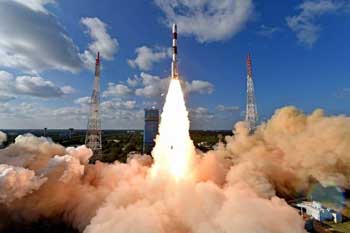Delhi,,
India and the World Bank today signed IDA credit of $162.7 million for Rajasthan Rural Livelihoods Project, which will finance livelihood opportunities for some 400,000 village households in 17 districts of Rajasthan. The agreement for the Rajasthan Rural Livelihoods Project was signed by Shri Venu Rajamony, Joint Secretary, Department of Economic Affairs, Ministry of Finance, on behalf of the Government of India; Mrs Poonam, State Project Director on behalf of the Rajasthan Government; and Mr. Roberto Zagha, Country Director India, on behalf of the World Bank.
The funding for the Rajasthan Rural Livelihoods Project will help improve economic opportunities for rural communities, especially women and marginal groups, in 9000 villages of the state. It will channel financing for income-generating activities through some 33,000 SHGs; link selected SHGs to markets; and also help develop skills for unemployed rural youth.
The Project aims to help the state government raise income levels for some 400,000 rural poor households in Rajasthan. Despite rapid decline in poverty from 50 percent in 1970 to about 24 percent in 2005, the absolute numbers of poor families in the state of Rajasthan still stand at more than 2 million (Census 2002). Recurring drought and a growing crisis in ground water supply, have further contributed to the challenges facing rural households.
Speaking on the occasion, Shri Venu Rajamony, Joint Secretary(MI) said that this Project with the World Bank is building on the successful livelihood initiatives undertaken in India to provide mechanisms by which rural households can improve their overall economic well-being.
Mr. Roberto Zagha, World Bank Country Director for India said that Global experience has shown that while general growth of the economy helps reduce poverty, it needs to be complemented by specific strategies designed to expand opportunities for the poor.
The Project will build on lessons learnt from the earlier Bank-financed Rajasthan District Poverty Initiatives Project (DPIP) which had helped poor rural communities build assets through Common Interest Groups (CIGs); provided linkages to markets; and built a cadre of trained people at the village level. However, the inability of CIG members to access funds for subsequent investments raised questions on the sustainability of the CIG model beyond the project phase.
Mr. Nathan Belete, Task Team Leader for the Project said that the Project intends to provide a sustainable mechanism by which to empower rural poor, particularly women, to improve their access to social and financial services. The design of this project draws on lessons learnt from not only the first phase of the Rajasthan DPIP but also from the rich experiences of the on-going second generation livelihood projects being implemented in the states of Andhra Pradesh, Tamil Nadu, Bihar, Orissa, and Madhya Pradesh.
The Project will build the capacity of community institutions to deal more effectively with formal financial intermediaries, market institutions, public sector departments, and develop new partnerships with the cooperatives and the private sector.
The credit is provided by the World Bank’s fund for the poorest, the International Development Association (IDA), and has 35 years to maturity and a 10-year grace period.
The Bank’s current engagement in Rajasthan includes two state-specific projects in irrigation & water resources and health systems development, together comprising around $253 million. Besides, Rajasthan is also a major shareholder in the multistate rural roads project, of which Rajasthan’s share is around $229 million. Total Bank commitment in Rajasthan: $482 million which constitutes around 2% of the total net commitments in India.













artificial christmas tree…
This is very fascinating, You are an overly skilled blogger. I’ve joined your rss feed and look ahead to in quest of extra of your fantastic post….